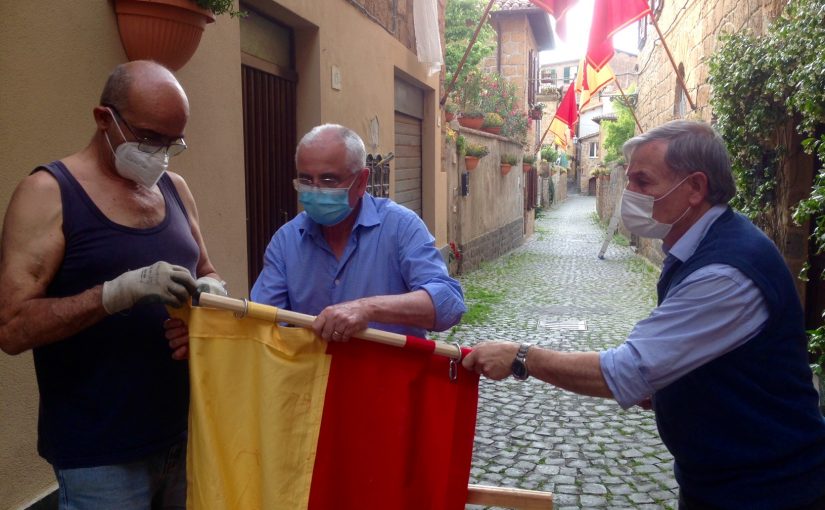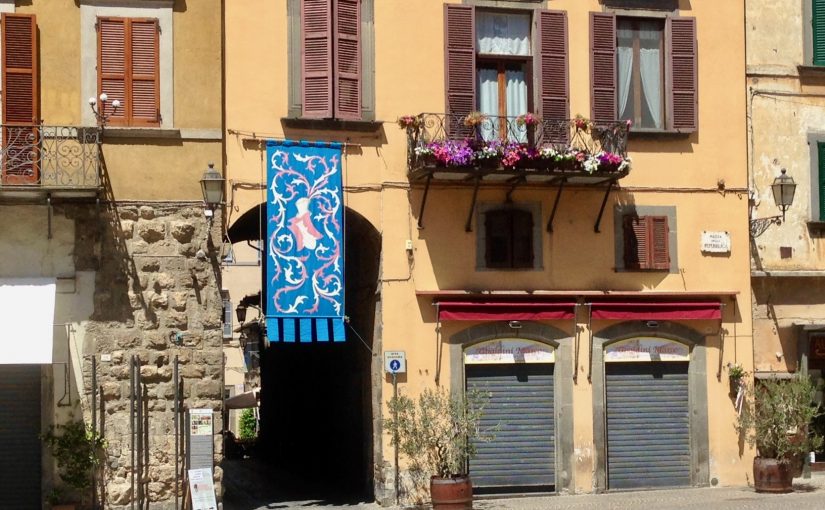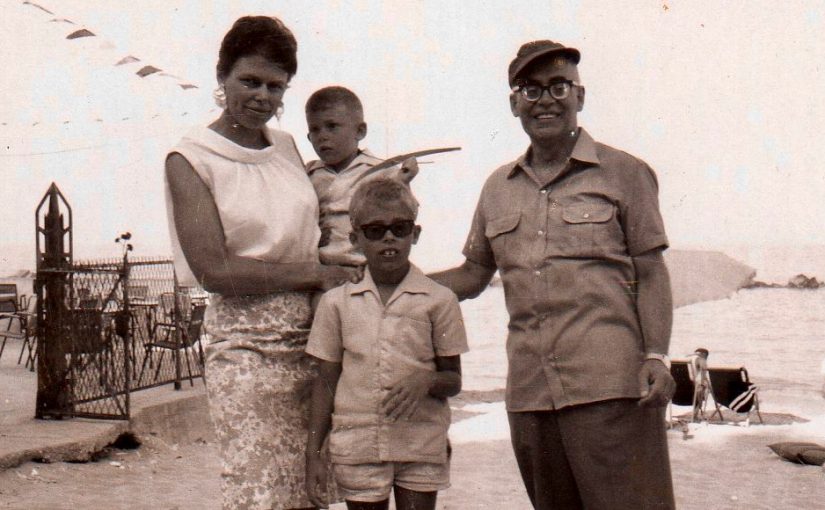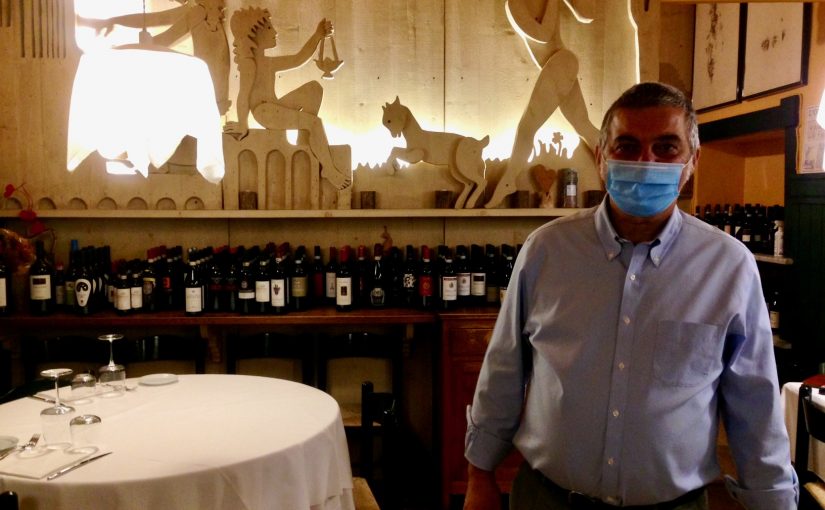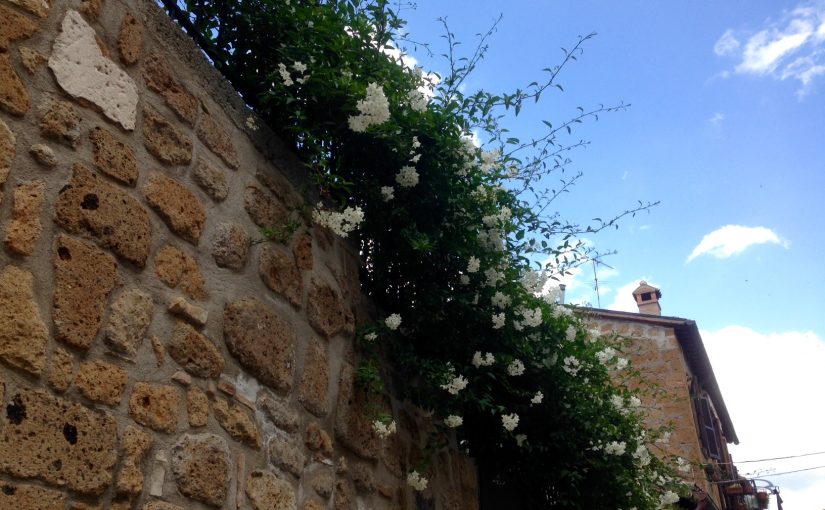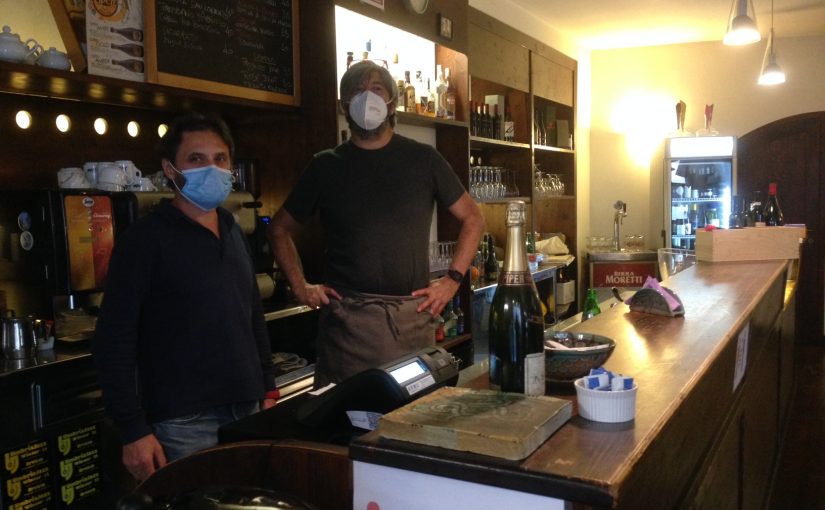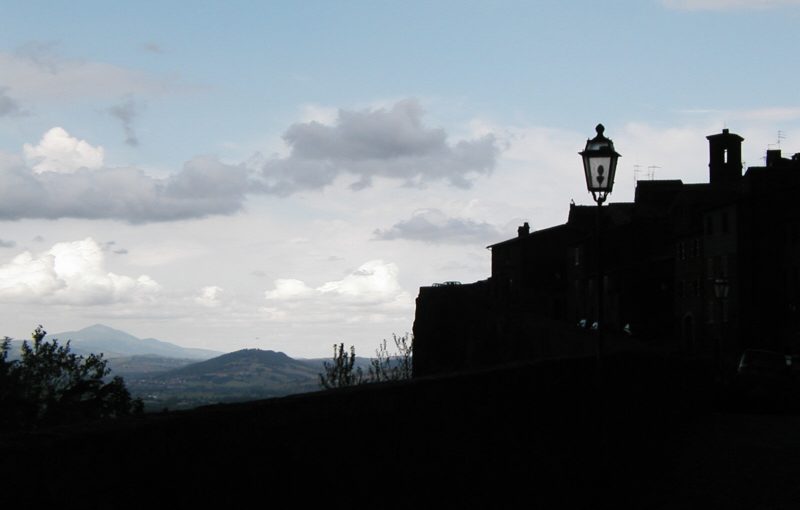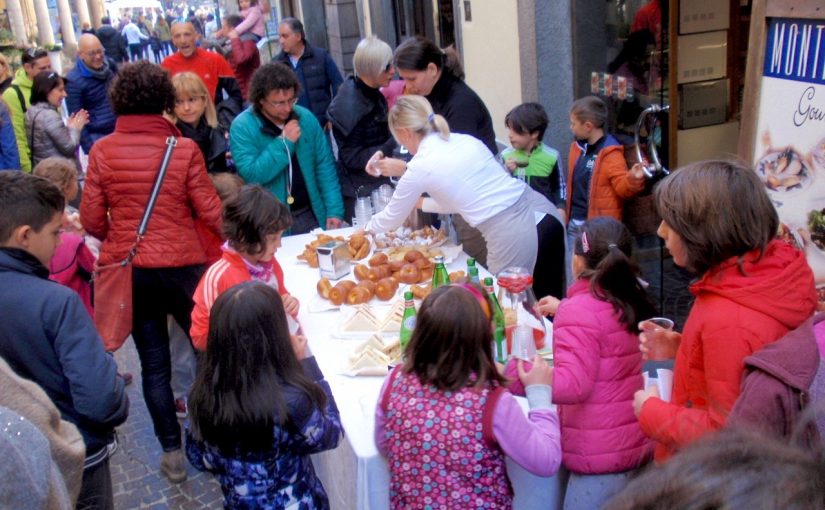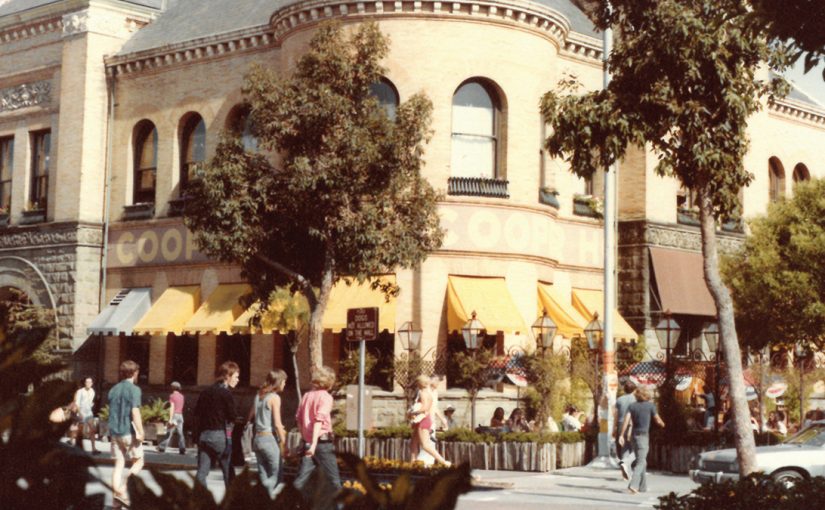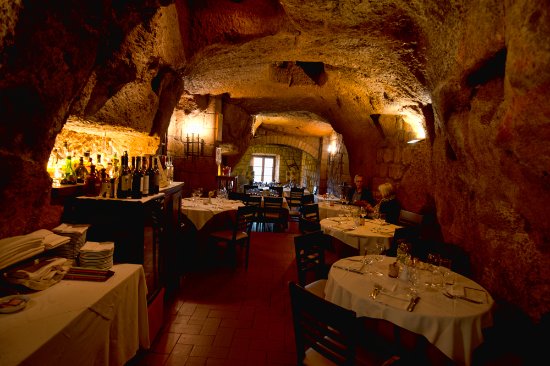I’ve said it before, but it’s good to have verification.
On an evening walk, I passed my neighbor Patrizia who was inspecting items in the window of the vintage clothing shop.
“Doing your shopping?”
“Spinning time while I wait for my sister. Where are you off to?”
“Just a walk. I got kind of shaky and a walk always helps. When I left the house, I saw Renzo and Giancarlo were out working. Maybe putting up the flags?”
“That’s what they’re doing. With all of this confusion and stress, it’s good to see the banners going up.”
“All over town! It’s even more special this year.”
“Yes! Because we don’t have to do it. No one can come here to see them. So, this year it’s for us. For us,” and she grinned and included everyone in sight with a single, sweeping gesture.
We stopped to take in the spectacle of the display in Piazza della Repubblica. Down Corso were two vertical banners elegantly placed to take advantage of the zigs and the zags that are inherent in all the town’s streets. I gasped. “Look at those banners! How beautiful they are.”
“Those are stendardi, bandieri are like those,” and she pointed to a flag. I struggled to hear and repeat the word, Patrizia helped. “S. T. E. N. Stendardi.”
“It doesn’t even sound Italian.”
“It’s a little unusual.”
I changed subject. “I’ve heard that this year the white dove for pallombella is to be replaced with a drone. I don’t understand how or why or… anything.”
“I think it will be as usual, but the drone will fly around and take a video of the ceremony.”
“So, there will be no public event.”
“Oh, no, that’s been cancelled.”
“And we’ll watch it on our computers.”
“Not me! I’ve had enough of my computer working from home to last the rest of my life. We can watch on our phones. Everything on our phones. Phones, phones, phones,” she dissolved into giggles.
On my walk up the hill near the ramparts I practiced my new word. Stendardi. Stendardi. (Pause. Wait for it.) Standards! No wonder it didn’t sound Italian! Banners and standards. I love moments like those.
A half hour later I turned the corner onto Via delle Pertiche Prima to a work-in-progress corridor of fluttering banners. I applauded before I knew what was happening.
“Bravi, ragazzi! E grazie!”
A new pole was needed, so Renzo and Gianni were making one in the street, wood shavings mixing in with the weeds that grow between paving stones.
“Can I get a picture of this?”
“He’s going to take a photo, Renzo! Quick!” shouted Gianni.
Renzo disappeared into his caverna and emerged seconds later appropriately masked. For the record, he was masked and legal when I left, but woodwork and sawdust can make of a mask an ugly thing.
Giancarlo joined them, and the banner (or maybe it was a standard) was threaded onto the new pole. It took three to do it. I love those guys.
This morning on my way to market – which has been moved, at least for now, to the large interior courtyard/parking lot at the old caserma (barracks) – I passed an edicola and scanned the headlines. La pallombella (a word that refers to both the ceremony and to the white dove that is central to it) is, after its traumatic journey from painted cloud to pyrotechnic tongues of flame, presented to honored guests, often the town’s newest parents or most recently wed. This year, according to the headline, la pallombella will be given to doctors and nurses. I cried before I knew what was happening.
“Bravi! Grazie!”
